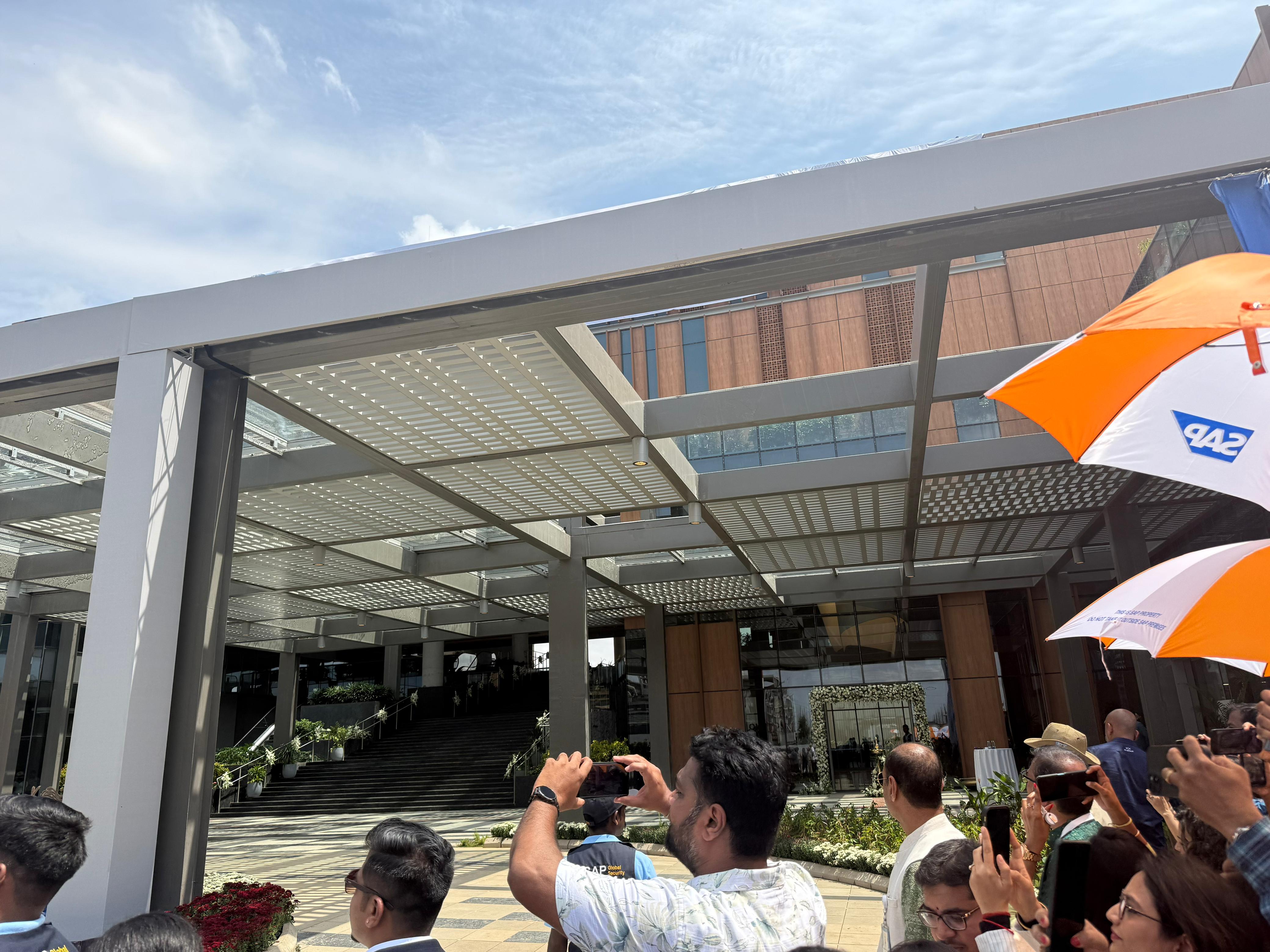A top executive of SAP believes “critical thinking” is one of the most crucial skill sets needed to succeed in the field of technology, especially in a product-based company like SAP.
Thomas Saueressig, Member of the Executive Board at SAP SE, Customer Services & Delivery, who was in Bengaluru for the inauguration of the company’s new campus in India, told indianexpress.com during a select media roundtable, “Indeed, if you have critical foundational knowledge, that will not go away”.
“In the IT market, there’s a scarcity of developers and a shortage of SAP experts. While AI can increase productivity, we still may not be able to meet the demand, as it is huge for these critical skills. We are certainly facing a scarcity of talent,” said Saueressig when asked whether artificial intelligence will replace software engineers and reduce tech jobs.
“We believe that AI will actually create far more jobs than we currently expect. What I also believe, with regard to AI skills, is that industry know-how and domain expertise will become even more important in the future,” Saueressig added.
“We are currently moving away from general-purpose large language models trained on the same public information available on the web towards proprietary, purposeful, domain-specific models. Applying AI in that specific context means that, as soon as you have deep industry knowledge and access to relevant data, you can differentiate with AI just as we have done before. And that’s something absolutely critical for us.”
 In larger organisations like SAP, the adoption of AI has already begun. (Image: Anuj Bhatia/The Indian Express)
In larger organisations like SAP, the adoption of AI has already begun. (Image: Anuj Bhatia/The Indian Express)
Headquartered in Germany, SAP is Europe’s most valued publicly listed company. Its enterprise software powers more than 90 per cent of Fortune 500 companies, including Coca-Cola, Apple, Walmart, Nestlé, and many others. SAP India has over 17,000 employees.
Role of engineers goes beyond coding
As large tech companies see widespread adoption of AI coding tools internally, it raises the question of whether they still need software engineers and if coding skills will remain relevant in the future. However, the growing popularity of AI coding tools doesn’t mean that software engineers are on the verge of mass extinction, as some predictions suggest.
Story continues below this ad
“We are bringing the concept of cross-functional teams together, as this is a part of design thinking. Of course, you want to have an AI engineer, but you also need an industry expert, a business process expert, and many other functions working together to solve real-world business problems. In that sense, it will be interesting to see how this dynamic evolves, and that’s why we remain quite positive. Yes, AI is impacting the job market. We are seeing many more openings for AI engineers and prompt engineers. Overall, there’s a huge increase in demand across all IT sectors, including on the customer side.”
Saueressig indicated that the role of engineers goes beyond just coding; it also involves architecture, code reviews, and brainstorming – areas where critical thinking plays a key role. While AI can automate some aspects of an engineer’s work, humans are still needed in the loop to ensure engineering efforts align with the broader goals of the organisation.
In particular, in larger organisations like SAP, the adoption of AI has already begun. In fact, according to Saueressig, more than 75 per cent of all its developers have undergone dedicated AI development training, and more than 90 per cent of its developers already use AI tools daily to increase productivity and development efficiency.
“AI will be the new UI. Fundamentally, we believe there will be no process without AI in the future, so we naturally embed it in all of our software. AI is not something separate or bold; it’s part of modern enterprise software,” he said.
Story continues below this ad
“At the end of the day, AI is only as good as the data it receives. As the world market leader in enterprise software, you can be assured that our systems hold the data treasure needed to make AI business-context specific, using business data and process context to deliver the most relevant, reliable, and responsible AI in the industry. That’s what we do, leveraging data from more than 40,000 customers to train our own foundational model, which is also an interesting aspect,” Saueressig explained.
Sindhu Gangadharan, SVP and MD, SAP Labs India, chipped in, adding that SAP’s strategy is an “AI-first, Suite-first strategy.” “If you look at processes like lead-to-cash, total workforce management, design-to-operate, strategic sourcing, or procurement, all of these have core teams behind the products and processes, and these teams are based here in India.” “Every developer at SAP Labs India is and will be an AI developer,” she added.
SAP this week opened its second campus in Bengaluru, Karnataka. The campus spans 41 acres and is being developed in multiple phases. Once complete, it will have the capacity to accommodate up to 15,000 people. Currently, 3,200 SAP employees have moved in, with an additional 4,500 expected to relocate during the first phase.

